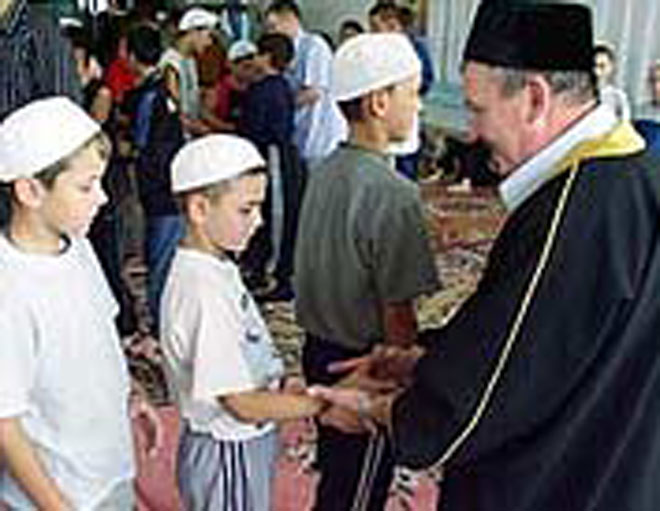Major Shiite groups have formed a new alliance that will exclude the Iraqi prime minister, lawmakers said Monday, a move likely to stoke fears of increasing Iranian influence and shake up the political landscape ahead of January parliamentary elections, AP reported.
The coalition will include the largest Shiite party, the Iranian-backed Supreme Iraqi Islamic Council and anti-U.S. cleric Muqtada al-Sadr's bloc, which could give Tehran deeper influence in Iraq just as U.S. forces begin to withdraw.
The last American soldier is scheduled to leave Iraq by the end of 2011.
Prime Minister Nouri al-Maliki's Dawa Party was left out because of disagreement over who would lead the alliance, senior SIIC member Reda Jawad Taqi told The Associated Press. He said a last-minute meeting held Sunday in a bid to bring Dawa into the coalition had failed to overcome the differences.
Key figures in the alliance said efforts continued to try to reach agreement with Dawa.
"We are hoping for their participation and the door will be left open for them," ex-Prime Minister Ibrahim al-Jaafari said.
The announcement was a new setback for al-Maliki, whose efforts to portray himself as a champion of security has been battered by a series of devastating bombings in Baghdad and in northern Iraq in recent weeks. The most recent of these struck the foreign and finance ministries on Wednesday, killing about 100 people and wounding some 500.
The uptick in violence has heightened fears that Iraqi security forces aren't ready to protect the people nearly two months after most U.S. troops pulled back from urban areas.
Iraqi Vice President Adel Abdul-Mahdi, a top SIIC member, also reached out to Dawa, saying it was important to present a strong united front that can face the overwhelming challenges facing the country.
"Forming the alliance is the first step and the second step will be broadening it and inviting political parties and national figures to join in order to achieve unity," he said.
Monday's announcement was a major shift in Shiite politics, which have long been dominated by the Supreme Council and al-Maliki's Dawa party.
Al-Maliki's aides have said the prime minister was working to form a broad-based, national coalition that he could lead in the January vote in a bid to end sectarian politics. The inclusion of Sunnis in the Shiite-led alliance announced Monday and his own battered image could force him to reconsider.
The coalition will replace the United Iraqi Alliance, which won control of parliament in the last parliamentary elections in December 2005 elections but began to unravel later with the withdrawal of two major factions and bitter rivalry between al-Maliki and the Supreme Council.
Members of the groups joining the list stood one-by-one at a news conference to announce the new list.
Former Prime Minister Ibrahim al-Jaafari read a statement, noting that the ailing leader of the Supreme Council, Abdul-Aziz al-Hakim, was absent because he has been hospitalized in Iran.
"We wished that al-Hakim could be with us, but he is sick," al-Jaafari said. "We pray he will feel better soon but he will be with us spiritually," al-Jaafari said.
Al-Hakim, who was diagnosed with lung cancer in 2007, has wielded enormous influence since the 2003 U.S. invasion, maintaining close ties to both the Americans and his Iranian backers.
He has groomed his son, Ammar, as his successor. Ammar al-Hakim also missed the news conference because he had rushed to Iran as his father's health deteriorated, officials said.
Al-Jaafari said the new alliance would be focused on rebuilding the economy and security in Iraq.
Also absent was al-Sadr, who is believed to be in Iran. His bloc was represented by lawmakers and officials.
The list included several Sunnis, including a small faction from the western Anbar province that includes fighters who joined forces with the Americans against al-Qaida in Iraq and won power in provincial elections earlier this year.
"Al-Qaida announced their Islamic state and we managed to topple them," said the leader of the Anbar faction, Sheik Hameed al-Hais. "We call on the new alliance to be serious in dealing with security in Iraq."
Ex-Deputy Prime Minister Ahmad Chalabi, a former Pentagon favorite who leads the secular Iraqi National Congress, is also in the new alliance.
The Supreme Council lost control of major southern provinces to an alliance led by al-Maliki in January's provincial elections. Al-Maliki's success raised concern among other Shiite politicians that internal divisions could cost them seats in the upcoming parliamentary elections in January.
Most Shiites will likely vote along sectarian lines as they did in parliamentary elections in January and December 2005 if the country's top Shiite cleric, Grand Ayatollah Ali al-Sistani, publicly endorses the bloc.
A strong showing by the new alliance would ensure the domination of Iraqi politics by the Shiite religious parties that are viewed with suspicion by the Sunni Muslim minority, which lost its grip on power when Saddam Hussein's Sunni-led regime collapsed in 2003.
Many Sunnis consider the Supreme Council as little more than an instrument of Iranian policy. The party was founded in Iran in the early 1980s with the help of Tehran's ruling clergy and its militia fought alongside the Iranians against Iraq in the two neighbors' 1980-88 war.
Shiite groups announce new alliance minus Iraqi PM
Major Shiite groups have formed a new alliance that will exclude the Iraqi prime minister, lawmakers said Monday, a move likely to stoke fears of increasing Iranian influence and shake up the political landscape ahead of January parliamentary elections, AP reported.






